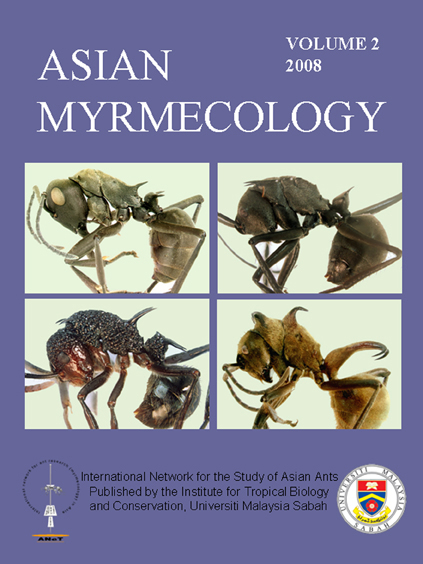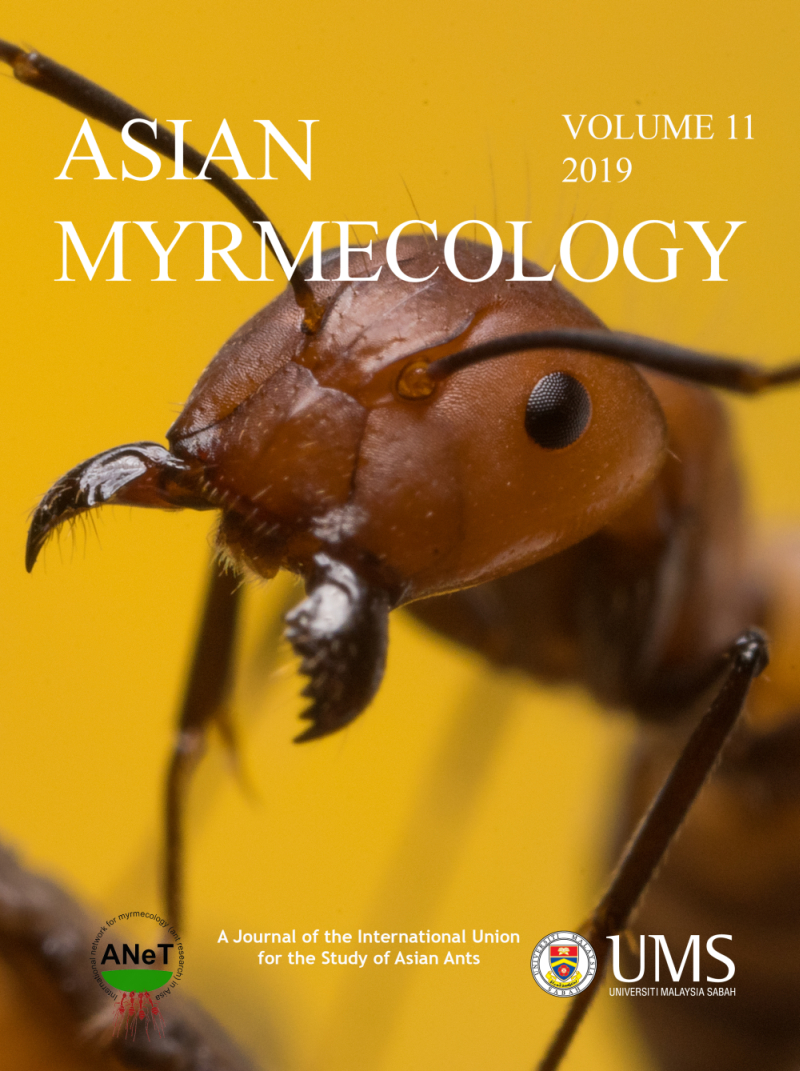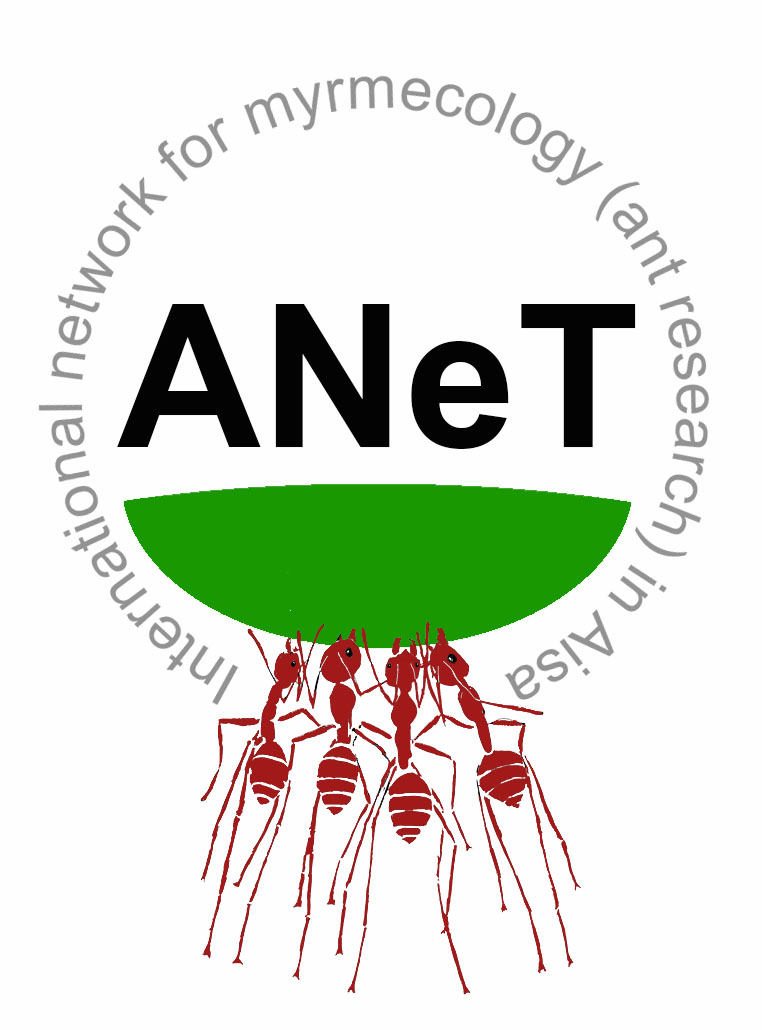ASIAN
MYRMECOLOGY
Image: François Brassard
Behaviour
Asian Myrmecology, Volume 2, pages 109-120, published December 2008
DOI: 10.20362/am.002012
Observations on the foraging behaviour of Myrmicaria brunnea subcarinata (Smith) (Hymenoptera: Formicidae) in a tropical rainforest in Sarawak (Malaysia)
JAN WRIEDT1*, DIRK MEZGER1, LUCY CHONG2 & MARTIN PFEIFFER1
Abstract:
As a contribution to the knowledge of the natural history of Myrmicaria brunnea subcarinata (Smith, 1857), we studied the territory, circadian activity patterns, diet composition, trophobiotic interactions and fighting success of a colony of this species in an alluvial forest in Gunung Mulu National Park (Borneo, Malaysia). The territory size of the focal colony, which comprised 6,000 to 8,000 individuals living within a single nest, was approximately 270 m2. Many permanent foraging trails were subterranean and total observed trail length was about 44 m. Ants were active at the nest throughout the 24-hour cycle, with increased foraging activity during the night. The food spectrum of the species included mostly animal prey, but also herb particles and plant juice. Additionally, M. brunnea subcarinata was found in trophobioses with several bugs (Coreinae) and other hemipteran species at stems of the climbing bamboo Dinochloa trichogona and other plant species. Observations at baits showed that the species defended resources successfully in about 2/3 of all experimental interactions, with Pheidologeton affinis being its most effective competitor.
Keywords:
Borneo, competition, foraging activity, Myrmicinae, territoriality, trail system, trophobiosis, tropical rainforest
Get PDF (35K):
1University of Ulm, Department of Experimental Ecology, Albert-Einstein Allee 11, 89069 Ulm, Germany
2Forest Research Centre, Sarawak Forestry Corporation, Kuching 6 Mile Jalan Datuk Amar Kalong Ningkan, Sarawak 93250, Malaysia
*Corresponding author: jan.wriedt@gmx.net



